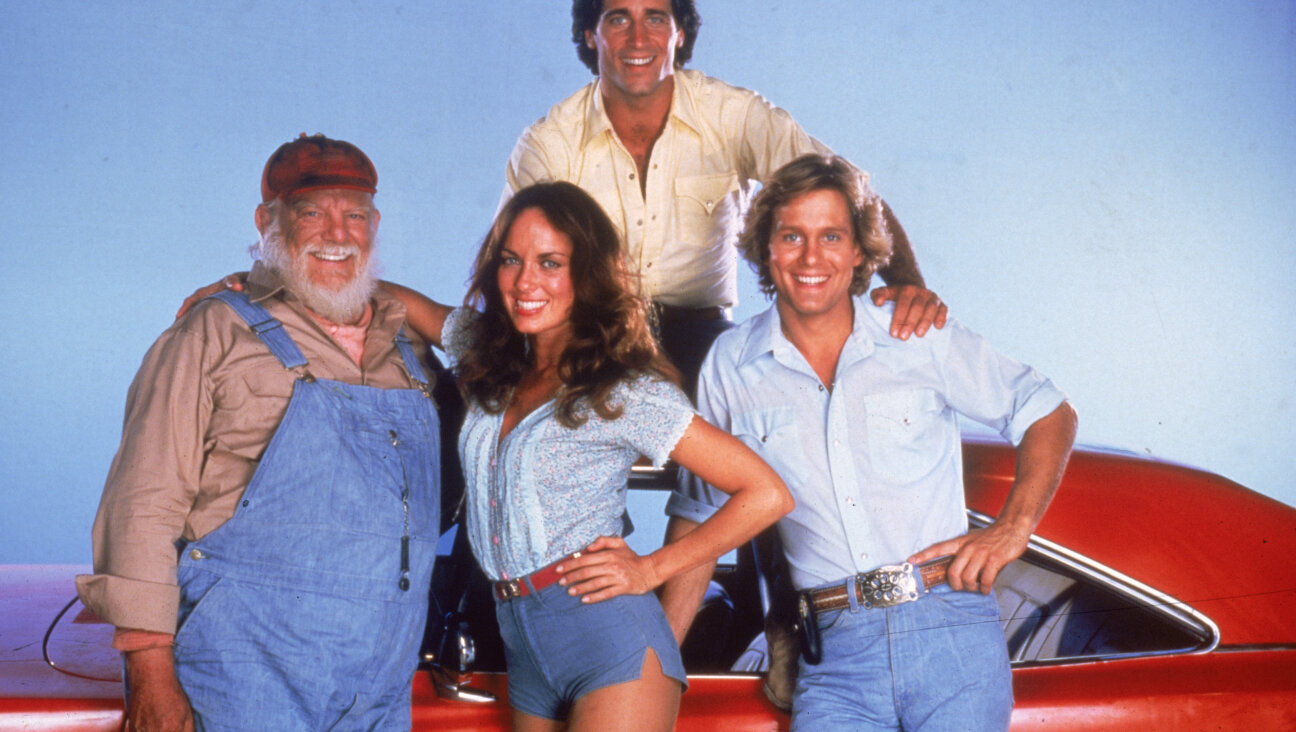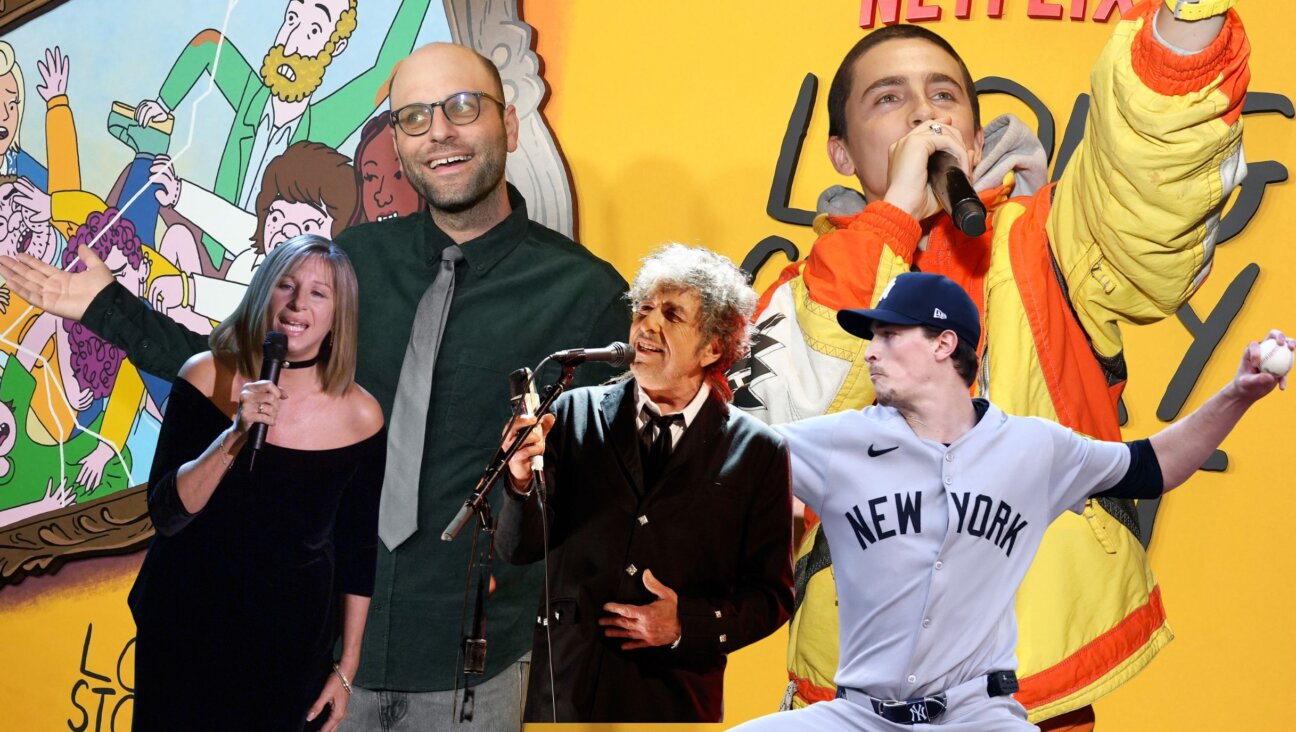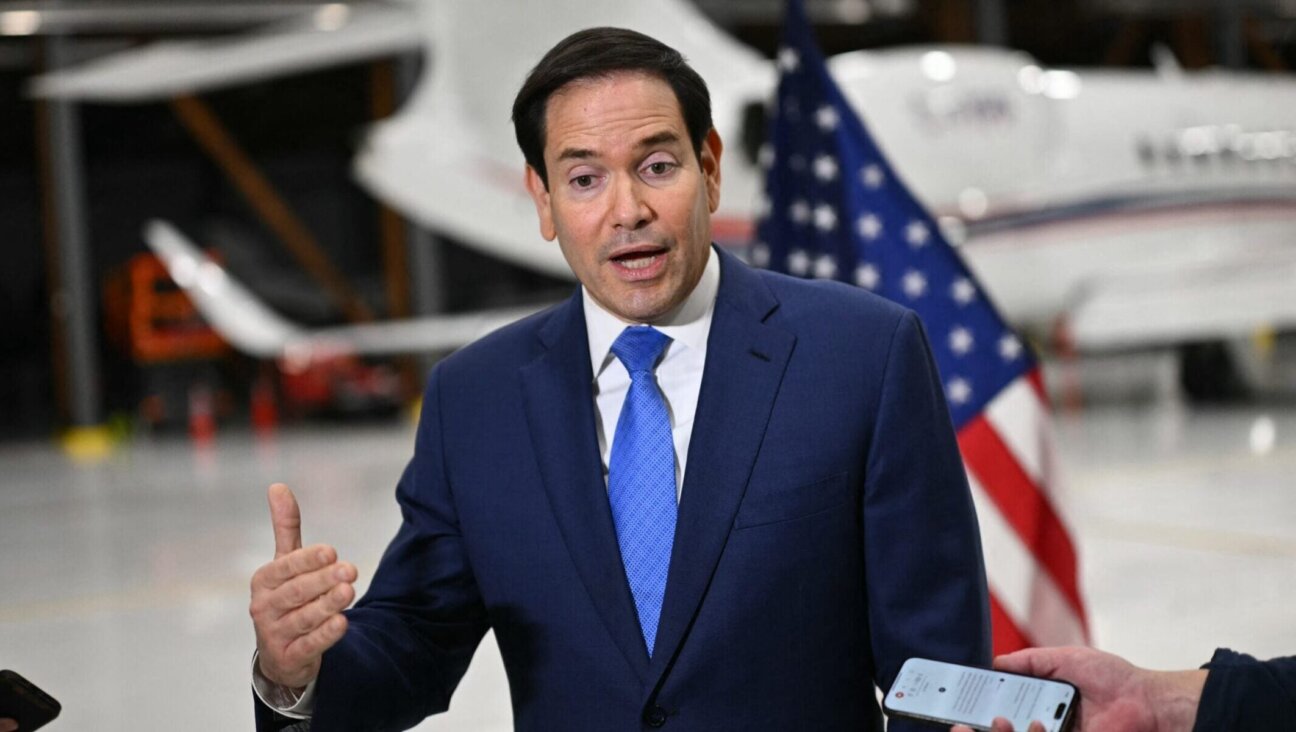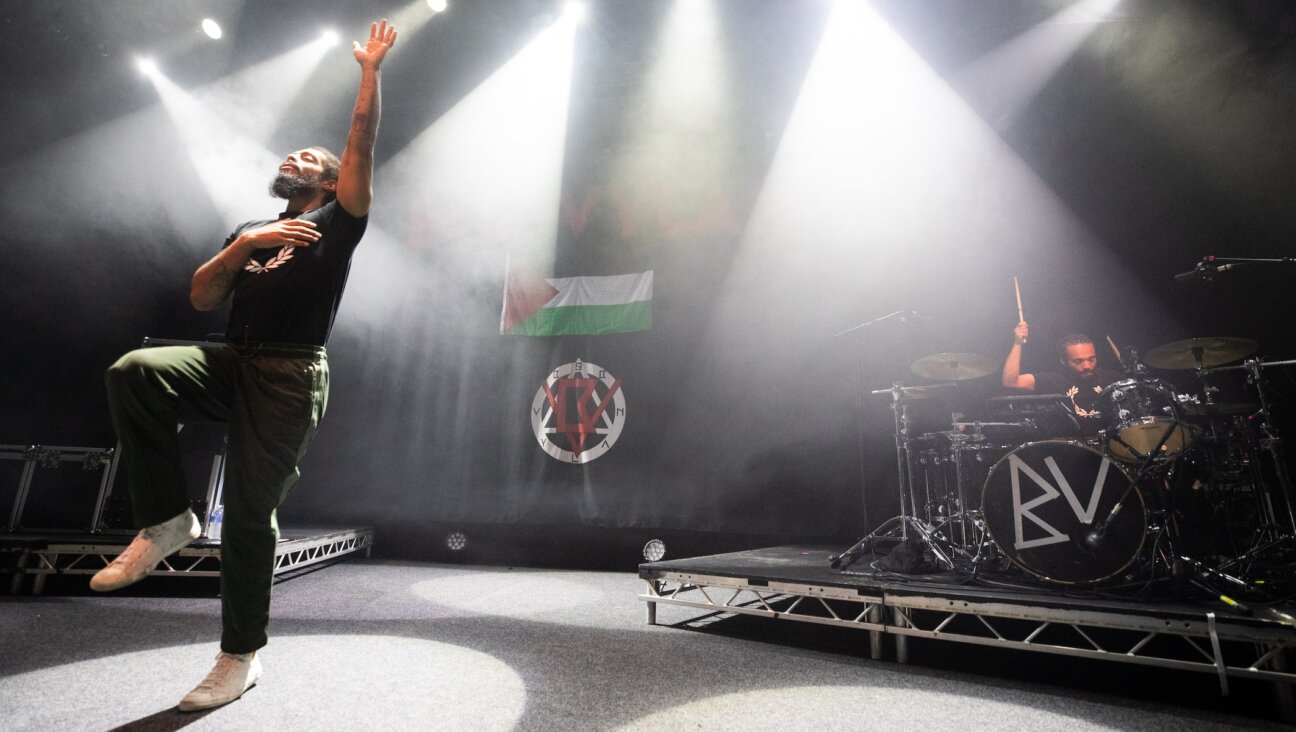The Second Coming of Jewish Baseball Star Jason Marquis

A Marquis Athlete: Jason Marquis, a pitcher for the San Diego Padres, won eight straight games earlier this year. Image by Getty Images
In October 2012, Gerald Eskenazi wrote an article in this newspaper on the evolving image of the Jewish athlete. The article quoted the mother of major league pitcher Jason Marquis, who had once called the editor of the Jewish Sports Review to ask: “My son’s Jewish. How come he’s not in your publication?”
By last October there were some legitimate reasons that Marquis hadn’t yet been featured in the publication. A journeyman player, Marquis, who grew up on Staten Island, had pitched for eight different teams over his 12-year career. Though he had arrived in 2000 as a top prospect with the Atlanta Braves — the 144th Jewish major leaguer in baseball history — and though he had shown moments of brilliance and success (in 2009 he was selected for the All-Star Game and earned almost $10 million with the Colorado Rockies), at the end of last season his career win-loss record stood around the .500 mark. In May 2012 the Minnesota Twins released him, and the San Diego Padres picked him up on a minor league contract.
As he entered the current season, it was unclear whether Marquis, now 34, would ever achieve his full potential. But all that changed this year, as Marquis suddenly emerged as one of the hottest pitchers in baseball, starting the season at 9–2 and winning eight straight decisions for the Padres.
Today, Marquis is a major reason why the Padres have been in contention in the National League West. The Forward spoke with Marquis as he took time to reflect on his success this season and on his Jewish upbringing.
Asked about the challenging 2012 season he experienced, Marquis mentioned his daughter Reese’s serious bicycle accident, which resulted in a lacerated liver and significant internal bleeding: “My eldest daughter had an accident, and I had to miss about 40 days of baseball,” he said. “So I was away from the team for spring training and never really got the proper work that I wanted to put in. When the Twins released me, I went home for about seven or eight days. By then my daughter was better, and I just put the proper work in that I missed early on in the season.”
Back on track this year, Marquis attributes his success to finding his focus both physically and mentally. “I pitch to contact,” he said, “and it seems like when things are getting a little dicey, I’ve been able to slow the game down a little bit and really focus on what I had to do.”
Marquis chuckled when told about his mother’s call to the Jewish Sports Review. “Both of my parents were Jewish,” he said, “and they took us to temple and we went through the whole process of Hebrew school and getting bar mitzvahed, and stressed the importance of tradition and family, and obviously it carried on.” When asked what Jewish lessons of his youth he carries on today and shares with his kids, he says he focuses on traditional values. “Pro-education” he said. “Be smart. Treat people the way you want to be treated. And keep the traditions of your family alive.”
Despite his pride in his Jewish heritage, Marquis doesn’t see much overlap between his identity as a Jew and his life as a baseball player: “I’m a major leaguer. When we’re on the field we’re baseball players. I try to separate religion, race and ancestry from the equation, because we’re all out there trying to accomplish the same thing, and that’s to win. I try not to put too much emphasis on [religion], because I feel that when you do, that’s when you start creating that separation.”
Asked if he has experienced any of the difficulties or discrimination encountered by earlier generations of Jewish ballplayers — legends like Hank Greenberg, Sandy Koufax and Ken Holtzman — Marquis says that those attitudes are in the past: ‘I wasn’t around, so I really can’t speak about what those guys went through. I can only speak from my personal endeavors and personal experience, and I have not found anything negative toward the Jewish religion in any way.”
At times throughout his career, Marquis has been taken to task for playing on Jewish High Holy Days, including the instance in 2010 when, while playing for the Washington Nationals, he pitched on Yom Kippur, which runs contrary to the religious observances of earlier Jewish ballplayers. “Your team expects you to do your job and not let your teammates down, and that’s the approach I take,” Marquis said.
Marquis is taking his remarkable season in stride, and says he feels blessed to be able to play the game he loves: “You make a great living, and see things and go places you never would have been before.” Most of all, he is proud to have “accomplished a dream in front of kids, [knowing] that you worked hard enough. You were given the talent to use, and you were able to act on it and make it happen.”
Jewish baseball heroes of the past showed previous generations that Jews in North America could fully fit into the mainstream culture by excelling at the favorite American pastime while at the same time fully maintaining their unique identity. Jason Marquis is a different kind of emerging Jewish baseball star, one who can feel connected to his traditions but also fit seamlessly into the whole without any “separation.” It’s for the Jewish baseball fan to decide if we lost anything along the way.
Harold Heft, a lifelong Montreal Expos fan, is a writer in search of a new baseball team.
















